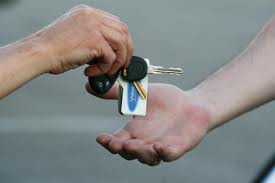Will urinalyzers cut down on DUI’s?
 We all know how and why breathalyzers work. You blow into a tube and it can accurately detect your blood alcohol content (BAC). If you have ever seen a breathalyzer hopefully it was because you owned one that you used to keep an eye on your own BAC and it wasn’t because you are drunk driving. If it was because you were drunk driving, at least you and the rest of the people on the road are safe. Drunk driving is dangerous and causes thousands of accidents a year. Many people needlessly die due to drunk driving and law enforcement as well as groups such as MADD; have been trying to combat it for years now. Finally there may be an answer to the drunk driving epidemic: urinalyzers.
We all know how and why breathalyzers work. You blow into a tube and it can accurately detect your blood alcohol content (BAC). If you have ever seen a breathalyzer hopefully it was because you owned one that you used to keep an eye on your own BAC and it wasn’t because you are drunk driving. If it was because you were drunk driving, at least you and the rest of the people on the road are safe. Drunk driving is dangerous and causes thousands of accidents a year. Many people needlessly die due to drunk driving and law enforcement as well as groups such as MADD; have been trying to combat it for years now. Finally there may be an answer to the drunk driving epidemic: urinalyzers.
Few people actually have the extra cash to spend on a portable breathalyzer and even fewer people who have a portable breathalyzer with them, actually use it. The drunker people get the less responsible, shall we say, they get. This is where the urine-analyzer rightly dubbed the “urinalyzer”) comes in. A urinalyzers is a new device which measures your BAC when you go to the bathroom after a few drinks, a lot of drinks, or you can’t even walk to the bathroom in a straight line amount of drinks. These urinalyzers are the newest thing in nightclub technology created by a marketing agency DDB and Zouk, a popular night club in Singapore.
The urinalyzer is a creative and clever device that is meant to stop drunks before they ever become drivers. Therefore the urinalyzer is meant to stop drunk drivers. So how does a urinalyzer work?
- First off, when you enter the nightclub you hand over your car keys in exchange for a special RFID card from the valet.
- Second, you have a few drinks.
- Third, you go to relieve yourself and the card will pair with the urine analyzer which then provides instant feedback on a screen above your urinal.
If you have gone above the limit and don’t listen to the warning that you just got from your urinal, the RFID card will warn the valet pretty much not to let you drive. The valet will then offer you many other ways to get home that don’t involve you getting behind the wheel of a car. They may offer to call you a cab or pitch to you their own drive-home service.
The urinalyzer is a new proactive technology so it has plenty of room to develop and fix any minor inconveniences or problems; the biggest one right now being the fact that women don’t use urinals. It won’t be surprising if eventually the urinalyzer finds its way into the women’s restroom too. But in the meantime the urinalyzer has stopped 573 people over the legal limit; in only two weeks. The sad news about that is only 342 took the valet up on the cab or drive-home service but those numbers could improve and include every person over the limit with police involvement.
Either way it seems more than hopeful that yes, urinalyzers will cut down on DUI’s.
http://www.thefix.com/content/urinalyzers-tag-drunk-clubgoers91941


